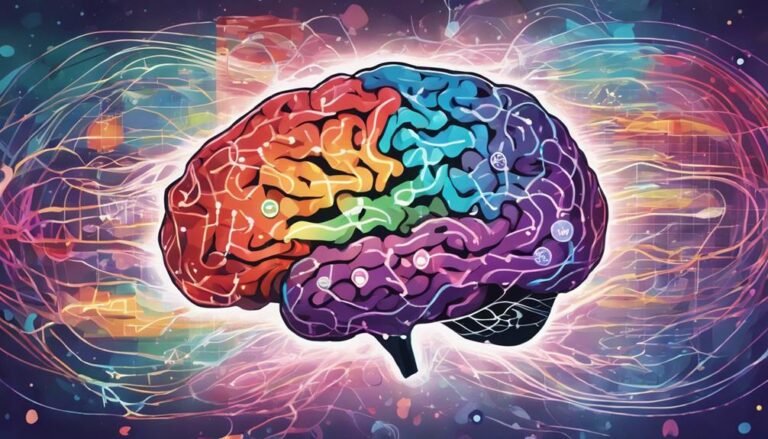Emotional Intelligence in Customer Service
Incorporate emotional intelligence into customer service to boost relationships and satisfaction. Understand clients' emotions, empathize with their needs, and communicate effectively. This fosters trust and meaningful connections. By actively listening, showing empathy, and managing emotions, you create a supportive environment for clients. Implement strategies like mindfulness and genuine care to enhance service quality. Remember, your empathetic approach can lead to improved customer relations and conflict resolution.Keep exploring the benefits and strategies of emotional intelligence in customer service to excel in understanding and connecting with your clients.
Key Takeaways
- Empathy and understanding are crucial in customer service interactions.
- Active listening builds trust and enhances communication with clients.
- Managing emotions effectively leads to more meaningful connections.
- Conflict resolution techniques based on emotional intelligence can de-escalate tense situations.
- Empathy training improves service quality and customer loyalty.
The Role of Emotional Intelligence
In customer service, understanding the role of emotional intelligence is essential for building strong relationships with clients. The significance of emotional intelligence lies in its ability to foster empathy and enhance communication in interactions with customers. By recognizing and managing your own emotions effectively, you can better understand the feelings of others, leading to more meaningful connections.
Empathy plays a vital role in customer service, as it allows you to see things from the client's perspective and respond in a way that addresses their needs and concerns. Through active listening and showing genuine care, you can create a positive environment for effective communication and build trust with customers.
Strong relationships are the foundation of successful customer service, and emotional intelligence is the key to nurturing these relationships. By being attuned to both your emotions and those of your clients, you can navigate interactions with empathy and understanding, ultimately creating a more satisfying experience for customers.
Benefits of EI in Customer Service
How can emotional intelligence benefit customer service interactions? Emotional intelligence plays a vital role in enhancing customer service experiences. Here are some key benefits of incorporating emotional intelligence in customer service:
- Improved Customer Relations: By understanding and empathizing with customers' emotions, you can build stronger relationships.
- Enhanced Communication: Emotional intelligence helps in effective communication, leading to clearer exchanges with customers.
- Conflict Resolution: Utilizing conflict resolution techniques based on emotional intelligence can help in de-escalating tense situations.
- Increased Customer Satisfaction: By showing empathy and understanding, customers feel valued and appreciated.
- Empathy Training: Providing empathy training to customer service representatives can improve overall service quality and customer loyalty.
Strategies for Developing EI
To further enhance your emotional intelligence in customer service, consider implementing specific strategies that can help you develop this essential skill set. Developing skills in emotional intelligence involves actively listening to customers, empathizing with their needs, and managing your own emotions effectively.
One strategy is to practice mindfulness, which can help you stay present and attentive during interactions. Building relationships is another key aspect, so focus on creating authentic connections with customers by showing genuine interest and care.
Furthermore, enhancing your self-awareness is important in developing emotional intelligence. Take time to reflect on your own emotions, triggers, and responses in various customer service scenarios. This reflection can help you better understand yourself and improve how you handle challenging situations.
Additionally, seeking feedback from colleagues or supervisors can provide valuable insights into areas where you can further develop your emotional intelligence skills.
Implementing EI in Service Interactions
Practice actively implementing emotional intelligence in your customer service interactions to enhance the quality of your relationships and responses. By focusing on improving empathy and enhancing communication, you can create more meaningful connections with your customers.
Here are some tips to help you effectively implement emotional intelligence in your service interactions:
- Listen actively: Pay attention to your customers' concerns and emotions without interrupting.
- Show empathy: Put yourself in your customers' shoes to better understand their feelings and perspectives.
- Use positive language: Frame your responses in a way that shows understanding and support.
- Manage emotions: Stay calm and composed, even in challenging situations, to maintain a positive interaction.
- Seek feedback: Ask for input from your customers to make sure you're meeting their needs and expectations.
Measuring EI Impact on Customer Satisfaction
Measuring the impact of emotional intelligence on customer satisfaction requires a systematic evaluation of the correlation between empathetic service interactions and customer feedback. Conducting an impact assessment involves analyzing how well customer service representatives demonstrate emotional intelligence in their interactions with clients and how this affects the feedback received. By measuring the levels of empathy, understanding, and problem-solving skills displayed during customer interactions, businesses can gauge the effectiveness of emotional intelligence in enhancing customer satisfaction.
Customer feedback serves as an essential tool in this assessment process. Positive feedback often indicates that emotional intelligence strategies are positively influencing customer experiences, leading to higher satisfaction levels. On the other hand, negative feedback may suggest areas where emotional intelligence training or improvement is needed. By consistently measuring the impact of emotional intelligence on customer satisfaction through feedback analysis, businesses can adapt their customer service strategies to better meet the needs of their clients.
Conclusion
So, as you can see, emotional intelligence plays a significant role in customer service.
While some may argue that it's difficult to measure the impact of EI on customer satisfaction, the benefits far outweigh any challenges.
By developing your emotional intelligence skills and implementing them in service interactions, you can enhance customer relationships, improve communication, and ultimately drive greater satisfaction and loyalty.
Remember, empathy and understanding go a long way in creating positive customer experiences.








